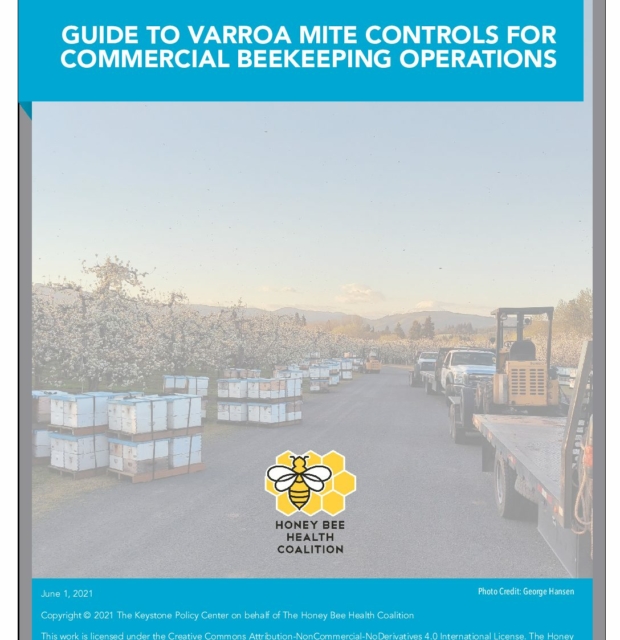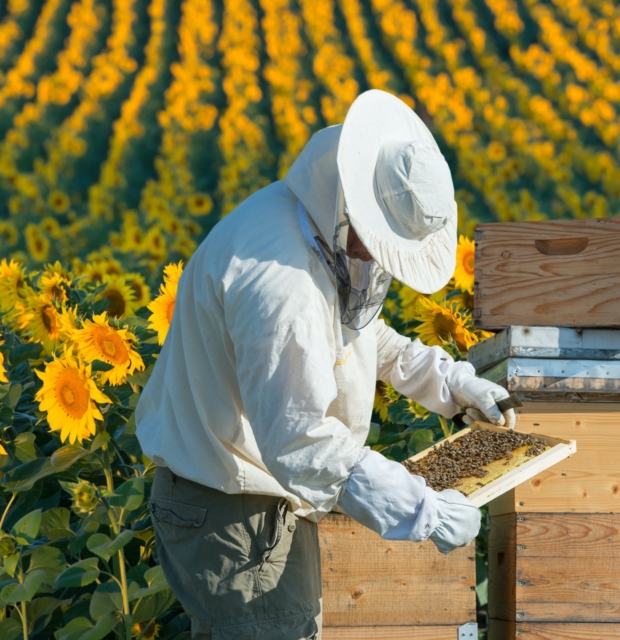News
Honey Bee Health Coalition Urges Collaboration, Multifactor Strategies Following Release of National Survey of Colony Losses
KEYSTONE, CO, May 25, 2017 — The Honey Bee Health Coalition, a diverse group of more than 40 organizations working to support pollinator health, urged continued cross-sector collaboration following the release of a national survey showing “an estimated 21.1 percent of colonies managed in the United States were lost over the 2016-2017 winter.” These losses, tracked by the Bee Informed Partnership, were an improvement over the past winter as well as the 10-year average loss rate of 28.4 percent.
The Bee Informed Partnership also reported total losses of 33.2 percent between April 2016 and March 2017 — “the second lowest rate of annual colony loss recorded over the last seven years.”
“Beekeepers, farmers, businesses, and NGOs have made tremendous progress supporting honey bee health. These results show movement in the right direction, but more collaboration and broad-based strategies are needed to further reduce overwintering losses,” said Julie Shapiro, the facilitator of the Honey Bee Health Coalition and a senior policy director at the Keystone Policy Center. “The Honey Bee Health Coalition is committed to continuing to bring together diverse organizations to find action-driven solutions to improve honey bee forage and nutrition, support sound hive management practices, reduce incidental pesticide exposure, and enhance collaboration and communication.”
Honey bees play an essential role in North American agriculture and global food supplies — with bees supporting approximately one in three bites of the food we eat every day. The Coalition has worked since 2014 to collaboratively implement solutions that will help to achieve a healthy population of honey bees while also supporting healthy populations of native and managed pollinators in the context of productive agricultural systems and thriving ecosystems.
“These continued and sustained heavy losses — year after year — show the urgency for working to address the variety of factors and drivers of honey bee health,” said Danielle Downey, executive director of Project Apis m. “Honey bees are integral to modern agriculture, and there is no available replacement for what commercial pollinators do. We look forward to continuing to work as a Coalition to reverse this ongoing trend and ensure we have healthy bees and a sustainable food supply for generations to come.”
Since its inception, the Coalition has focused on finding collaborative, science-based solutions to improving the health of honey bees and other pollinators. Through this approach, based on finding common ground, the Coalition has developed a wide array of resources and tools for beekeepers and others, including:
- Resources to support the development and implementation of Managed Pollinator Protection Plans at the state and tribal levels.
- A comprehensive guide to help beekeepers monitor and control Varroa mites, which can devastate bee colonies if left untreated.
- Demonstration videos and a bee club evening program to enhance understanding and use of the Tools for Varroa Management Guide.
- Recommendations for policymakers for improving the pollinator value and cost-effectiveness of USDA private land conservation program practices.
- The Bee Understanding Project, an innovative job-swap and film to help identify specific opportunities for improving honey bee health.
- An incident reporting guide to promote and improve beekeeper incident reporting regarding crop pest management- related bee health incidents.
About the Honey Bee Health Coalition
The Honey Bee Health Coalition brings together beekeepers, growers, researchers, government agencies, agribusinesses, conservation groups, manufacturers and brands, and other key partners to improve the health of honey bees and other pollinators. Its mission is to collaboratively implement solutions that will help to achieve a healthy population of honey bees while also supporting healthy populations of native and managed pollinators in the context of productive agricultural systems and thriving ecosystems. The Coalition is focusing on accelerating collective impact to improve honey bee health in four key areas: forage and nutrition, hive management, crop pest management, and communications, outreach, and education.
Through its unique network of private and public sector members, the Coalition fosters new partnerships, leverages existing efforts and expertise, and incubates and implements new solutions. The Coalition brings its diverse resources to bear in promoting communication, coordination, collaboration, and investment to strategically and substantively improve honey bee health in North America.
Learn more about the Coalition, its members, and ongoing work at honeybeehealthcoalition.org.
The Honey Bee Health Coalition is a project of the Keystone Policy Center, a nationally recognized nonprofit working to find collaborative, actionable solutions to public policy challenges. Keystone operates under a statement of independence to serve all of its project participants. Learn more at keystone.org.

